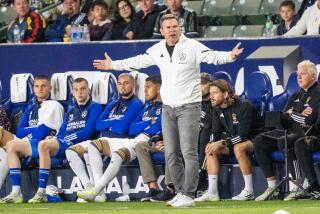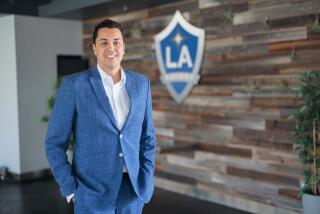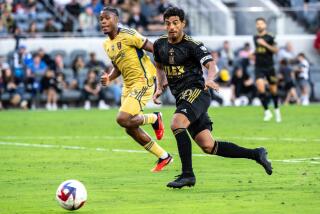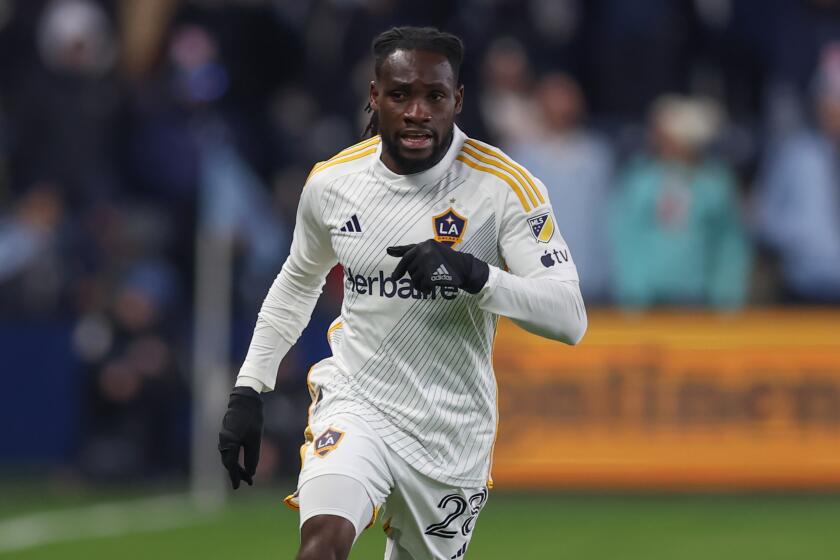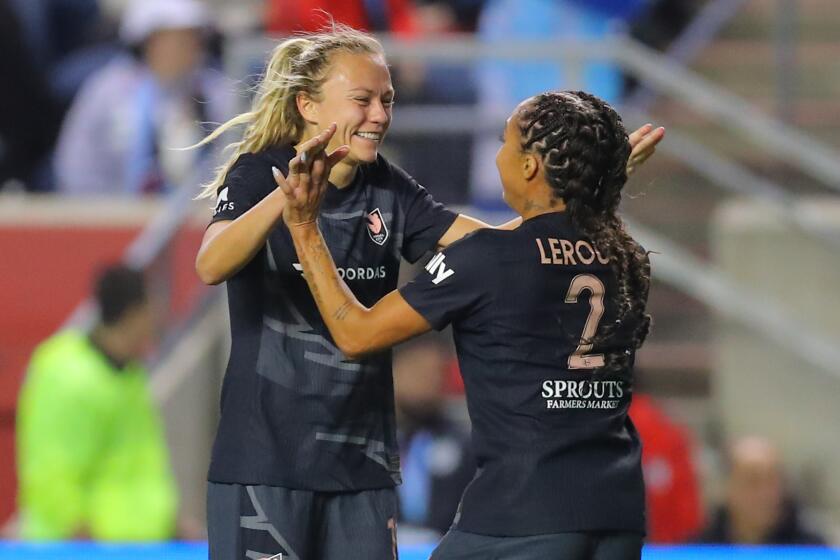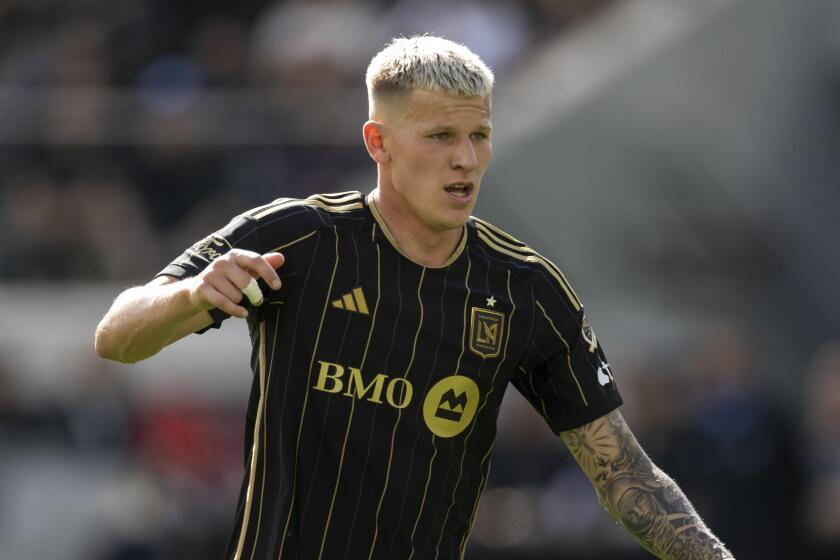For Robbie Rogers and other openly gay athletes, organizational support is key
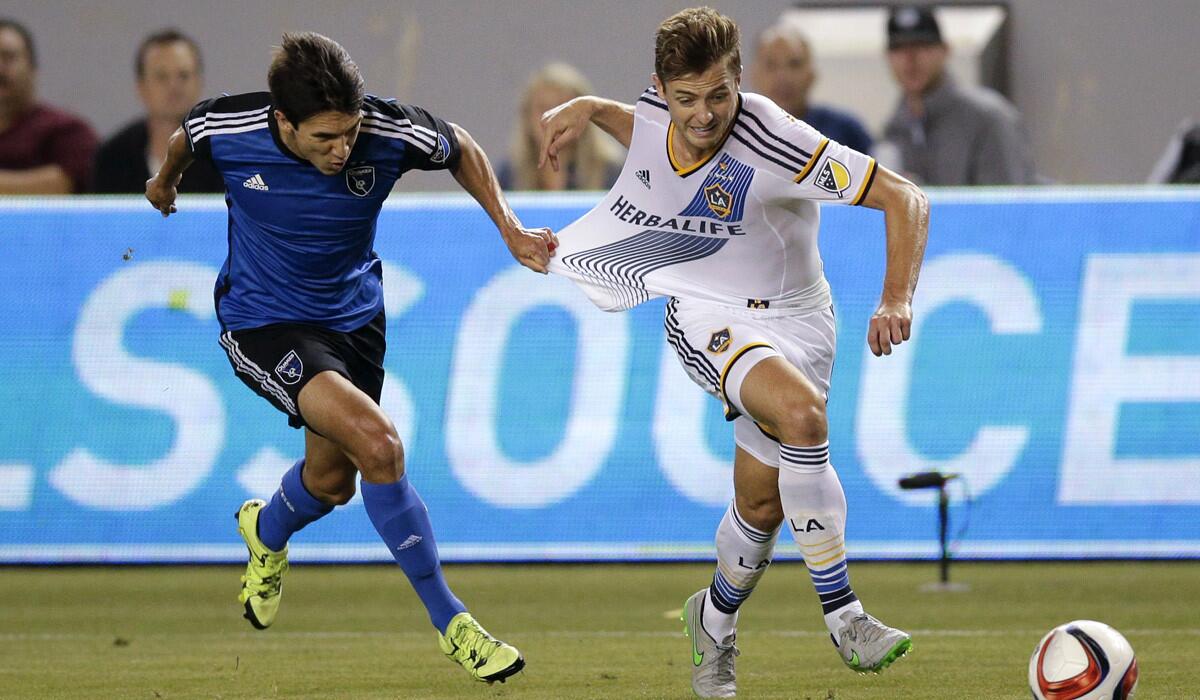
San Jose Earthquakes’s Shea Salinas, left, pulls the jersey of Los Angeles Galaxy’s Robbie Rogers during the second half of an MLS soccer match on July 17.
Whether minor leaguer David Denson succeeds or fails as affiliated baseball’s first openly gay player could be determined less by Denson’s talents and more by the attitudes of those around him.
At least that’s one lesson that can be taken from the experiences of the other three openly gay men who have played for major professional teams in the U.S.
Jason Collins, who in April 2013 became the first pro basketball player to come out, went nearly a year without a contract and then played limited minutes in 22 games the following season for the Brooklyn Nets before retiring from the NBA. And football’s Michael Sam, who was drafted and cut by the St. Louis Rams last year, played one game in the Canadian Football League before quitting earlier this month.
But soccer’s Robbie Rogers, who briefly retired after coming out in an emotional blog post in 2013, is thriving in his third season with the Galaxy, with whom he won an MLS Cup last winter.
“It’s been mostly the support system around me,” Rogers, 28, said of his success. “I have a great family and friends. The Galaxy has been absolutely amazing with me.”
The team stood aside as Rogers delved into fashion, wrote an autobiography and signed on to produce a single-camera sitcom, “Men in Shorts,” inspired by his soccer experiences, for ABC. Bruce Arena, the Galaxy’s coach, and Dan Beckerman, chief executive of AEG, the Galaxy’s parent company, were generous in giving Rogers the support he desired.
“There’s an owner in Los Angeles who said, ‘I am going to be the Branch Rickey of Major League Soccer and we are going to have a gay player on our team,’” Cyd Zeigler, co-founder of the gay sports website Outsports.com, said in likening Beckerman to the Dodgers general manager who signed Jackie Robinson, major league baseball’s first African American player.
“What has to happen with these other leagues is they need that same Branch Rickey-type owner or general manager. The guys in the suits are the difference now. Teammates don’t care.”
Rogers isn’t so sure. The decision to come out is a personal one, he said, so it would be difficult for teams to actively recruit gay athletes.
“I had to kind of find that courage and become comfortable with myself before I was willing to share that with other people. And I’m sure that’s the case with a lot of other athletes,” he said.
That comfort already exists in women’s sports, where sexual orientation has ceased to be a major issue. Sheryl Swoopes, a three-time MVP in the WNBA, is gay, as is Brittney Griner, one of the league’s current marquee players. In soccer, Jill Ellis, who coached the U.S. to a World Cup title last month, is gay, as are many players on her team.
Rogers says MLS is approaching that level of acceptance and he’s hopeful other leagues will follow.
“These guys aren’t treating me any differently, so why I am thinking of myself differently?” he said.
Twitter: @kbaxter11

